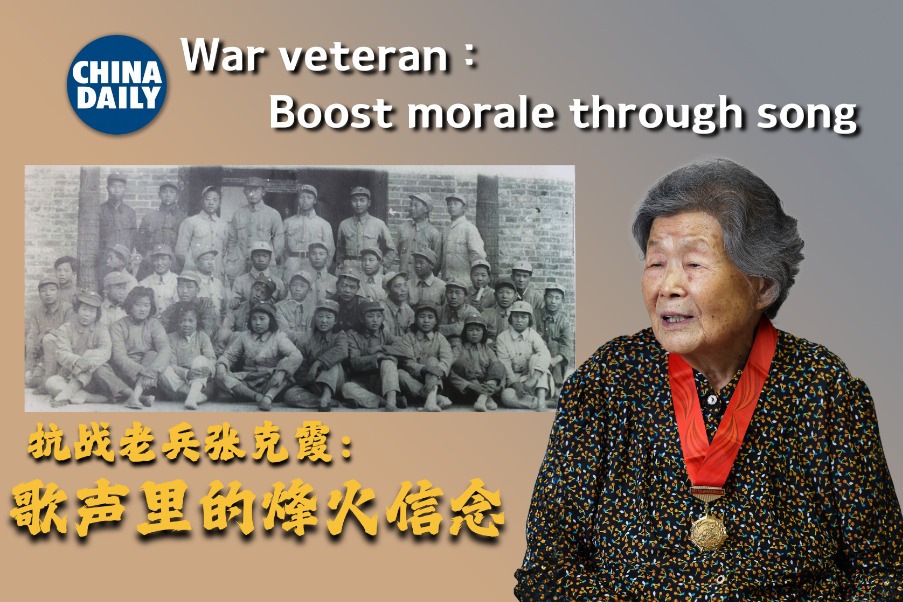Quality certification raises the bar

Premier says higher standards are needed for Chinese products to appeal more broadly both at home and abroad
China plans to improve the quality of its manufactured goods by developing a more inclusive certification and accreditation system, especially in the sectors of civil aviation, railways, automobiles and information technology.
The move, regarded as a vital step to promote the Made in China 2025 strategy, was approved at a State Council executive meeting chaired by Premier Li Keqiang on Sept 6.
By the end of 2018, the country's quality certification system will be updated in smart ways to cover different businesses - especially service-oriented and small and medium-sized enterprises - according to a statement released after the meeting.

Compulsory quality certifications will apply to products involving safety, health and environmental protection, while incentives will be provided to encourage companies to voluntarily apply for certifications.
The authorities will explore new methods for managing quality standards and exercise prudent supervision over new technologies, products and business models.
Meanwhile, quality certification supervision will be strengthened with strict standards as the nation encourages the development of quality certification institutions.
In addition, the campaign targets increasing international competitiveness for Chinese-made products. The government will facilitate international cooperation for mutual recognition of quality certification, which is expected to help Chinese brands be recognized around the globe.
Premier Li reiterated the importance of improving the quality of products and strengthening standardization, which in return will help achieve a medium and high-end economy.
At the meeting, Li recalled his visit to a foreign pottery factory about 20 years ago:
"Some produce looked good on the production line but had flaws on the surface. Quality inspectors simply crushed these products in front of workers because they said no flawed ones were tolerable," he said. "Today we have to build such consciousness of quality for products made in China."
Li also said he once met a manufacturer who couldn't sell a new electric vehicle in the domestic market because there was no such thing as a quality standard.
"All related departments should work together and raise competitiveness in quality in addition to price advantages for goods made in China," he said.
As of September, 1.76 million certificates had been issued nationwide, placing the country first globally, says Tian Shihong, director of the Standardization Administration of China. However, he says, the certificates are not yet well-recognized overseas.
Tian says more than 450,000 enterprises are covered by the rules of the international standards organization, while China has more than 20 million manufacturing companies.
The quality of goods and services is closely related to consumer rights and safety, sustainable development of the manufacturing sector and China's economic restructuring, says Liu Junhai, a professor of business law at Renmin University of China. It also raises the question whether supply-side structural reform can succeed in improving manufactured products, he says.
"Without a sound quality certification system, the manufacturers who produce high-quality products cannot stand out. Instead, others can muddle through with inferior goods. This is against the market, being an obstacle to supply-side reform. So the key lies in improving the system and tackling the institutional shortcomings," Liu says.
Zhao Jianbo, a deputy researcher in the Industrial Economics Institute of the Chinese Academy of Social Sciences says the urgent task is to promote quality branding.
As a new round of industrial revolution proceeds, it demands new technical methods to improve quality management as traditional industries are being changed to smart ones with new industries and business models emerging, Zhao says.
Liu Weijun, deputy director of the Certification and Accreditation Administration of China, says new technologies such as big data will be introduced to evaluate the quality of goods and also help suggest ways for them to improve quality.
The method has been piloted in aviation, railways and automobiles, he says.
huyongqi@chinadaily.com.cn
(China Daily European Weekly 09/15/2017 page15)
Today's Top News
- Goal of high-tech self-reliance unchanged: China Daily editorial
- Bid to sabotage South China Sea consensus shows Manila an irresponsible actor in region: China Daily editorial
- 'Zero-tariff'?a?blow to?zero-sum game
- China's railways hit record 2.24 billion passenger trips in H1
- Collection of Xi's articles on education, other two books published in Hong Kong
- Local govts urged to improve handling of hot spot issues






























